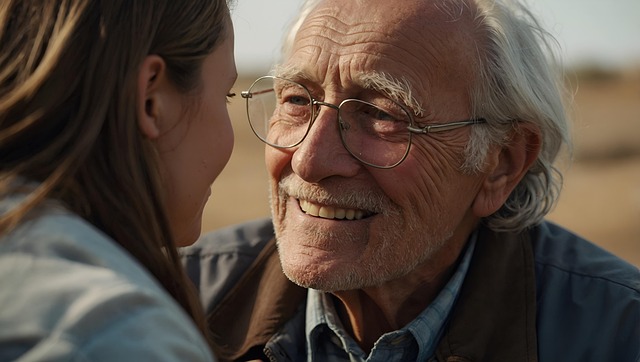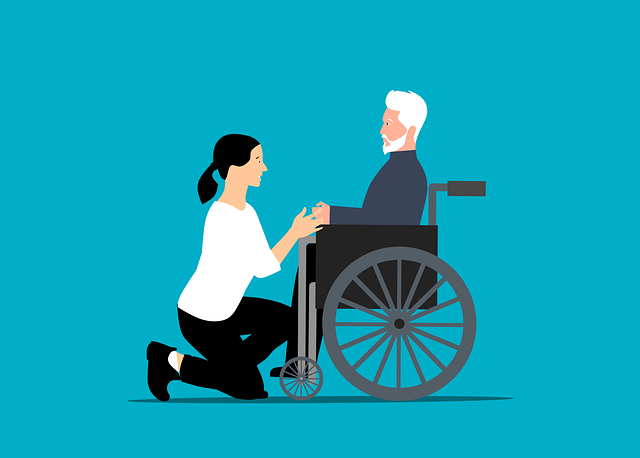Geriatricians in Los Angeles are essential in identifying elder abuse, including physical injuries, behavioral changes, and a rising trend of elderly sexual assault due to factors like cognitive decline and social isolation. California's large elderly population underscores the need for vigilance. Elderly sexual assault lawyers collaborate with geriatricians to provide legal support while focusing on medical and psychological care. Training, understanding aging vulnerabilities, and strong partnerships among healthcare, legal, and community organizations are key to early intervention, improved detection rates, and elder abuse prevention, ensuring safety for Los Angeles' aging population.
The protection of vulnerable elders is a pressing concern, given the growing aging population and the prevalence of elder abuse worldwide. In Los Angeles, identifying and addressing these issues is paramount to ensure the well-being of its diverse elderly community. Geriatricians play a pivotal role in this effort, as they are often the first line of defense against potential elder abuse, including sexual assault. This article delves into the strategies and challenges faced by these medical experts in detecting and preventing such heinous crimes, with insights from leading geriatric practitioners and an emphasis on the critical need for specialized legal support, like that of an elderly sexual assault lawyer California, to hold perpetrators accountable.
Recognizing Signs: Geriatricians' Role in Detection

Geriatricians play a pivotal role in identifying elder abuse within Los Angeles’ diverse population. Their expertise lies in recognizing subtle signs of maltreatment often overlooked by others. These signs can range from physical injuries indicating assault to behavioral changes suggesting emotional or financial exploitation. According to recent studies, California ranks among the states with a higher prevalence of reported elder abuse cases, underscoring the critical need for professionals like geriatricians to be vigilant.
One of the most insidious forms of elder abuse is elderly sexual assault, a complex issue often shrouded in silence due to stigma and fear. Geriatricians, equipped with specialized knowledge, are trained to detect non-verbal cues that may indicate such trauma. For instance, changes in sexual behavior or a sudden reluctance to discuss intimate matters could be red flags. Collaborating closely with elderly sexual assault lawyers California-based can provide legal support for victims while geriatricians focus on medical and psychological care. This multidisciplinary approach ensures comprehensive assistance for seniors suffering from this sensitive form of abuse.
Recognizing signs of elder abuse requires a nuanced understanding of the aging process and common vulnerabilities. Geriatricians should be adept at interpreting medical records, identifying patterns in patient presentations, and connecting seemingly disparate symptoms. For example, a sudden decline in overall health or cognitive function might point to exploitation or neglect. By staying updated with the latest research and guidelines, these healthcare professionals can enhance their detection skills, ultimately improving intervention rates. Regular training sessions focused on recognizing various forms of elder abuse, including physical, emotional, financial, and sexual assault, are essential for maintaining high standards of care.
The Elderly Population: Vulnerabilities Unveiled

The elderly population in Los Angeles, a diverse and growing demographic, faces unique challenges that put them at heightened risk of various forms of abuse, including elder financial exploitation, neglect, and, alarmingly, sexual assault. According to recent reports from the Los Angeles County Department of Senior Services, there was a 15% increase in reported cases of elder abuse between 2020 and 2021, underscoring the urgent need for specialized care and awareness. This vulnerable segment requires attentive oversight due to factors such as age-related cognitive decline, physical frailty, and social isolation, which can make it difficult for elders to advocate for themselves or report abusive situations.
Elder sexual assault, a particularly insidious form of abuse, often goes unreported due to the stigma surrounding the issue and the fear of further trauma. California, with its large elderly population, has seen a rise in these cases, prompting the need for increased awareness and specialized legal support. An elderly sexual assault lawyer California can play a pivotal role in advocating for victims, ensuring they receive justice and the necessary support services. These professionals are equipped to handle complex legal matters and offer guidance tailored to the unique challenges faced by elders who have suffered such crimes.
Addressing vulnerabilities among the elderly requires a multi-faceted approach. Healthcare providers, social workers, and community organizations must be vigilant in recognizing warning signs of abuse, including unexpected changes in behavior or physical condition. Early intervention is crucial; it can prevent further harm and empower elders to reclaim their independence and safety. By fostering partnerships between legal experts, healthcare facilities, and support networks, Los Angeles can create a more robust system to identify and address elder abuse, ensuring the well-being of its aging population.
Legal Framework: California's Approach to Elder Abuse

In Los Angeles, as across California, geriatricians play a pivotal role in identifying elder abuse due to their unique position to observe changes in an elderly patient’s physical and mental state over time. The legal framework addressing elder abuse is comprehensive, reflecting California’s commitment to protecting its vulnerable residents. Key laws include the Elder Abuse Prevention Act of 1983, which establishes mandatory reporting requirements for healthcare professionals, including geriatricians, when they suspect elder abuse or neglect. This legislation underscores the state’s serious approach to investigating and prosecuting instances of mistreatment towards the elderly.
California has further equipped law enforcement and social services with tools to address elder abuse through specialized units dedicated to these cases. For instance, many counties have Elder Abuse Task Forces that collaborate on complex cases, ensuring a multi-faceted response. The state also recognizes the specific challenges of identifying and prosecuting elderly sexual assault cases, requiring special training for investigators and prosecutors. An elderly sexual assault lawyer California is an expert in navigating this complex landscape, understanding the legal nuances and advocating for victims who may struggle to speak out due to trauma or cognitive impairments.
Data from the California Department of Social Services indicates a steady increase in reported elder abuse cases over the past decade, highlighting the persistent need for vigilance and improved prevention strategies. Geriatricians can contribute significantly by participating in ongoing training on recognizing various forms of elder abuse, including physical, emotional, financial, and sexual assault. Moreover, they should maintain detailed records that document changes in an elderly patient’s condition, as these can serve as crucial evidence in legal proceedings against abusers. Collaborative efforts between healthcare providers, law enforcement, and community organizations are essential to creating a robust safety net for California’s elderly population.
Preventing & Reporting: Strategies for Community Lawyers

The identification and prevention of elder abuse is a critical aspect of geriatric care, particularly in densely populated urban areas like Los Angeles. Geriatricians play a pivotal role in recognizing signs of abuse, neglect, or exploitation within the elderly population. One of the most insidious yet frequently overlooked forms of abuse is sexual assault against seniors, an issue that demands increased attention and specialized legal intervention. Community lawyers, equipped with knowledge of geriatric health and social dynamics, are crucial allies in this fight. They can collaborate with healthcare professionals to develop comprehensive strategies aimed at both prevention and swift reporting of elder abuse, especially sexual assault cases.
In California, where the elderly population is substantial, community lawyers have a significant opportunity to contribute to public safety. For instance, they can work closely with local geriatricians to create educational programs that raise awareness about sexual assault against seniors within their communities. These initiatives may include workshops for caregivers, family members, and vulnerable adults, focusing on recognizing red flags and understanding the potential impact of such crimes. Furthermore, lawyers can assist in establishing reporting protocols, ensuring that healthcare providers feel empowered to document and report suspected cases without fear of legal repercussions.
Practical steps include implementing mandatory training programs for medical professionals, law enforcement, and social workers to improve their skills in identifying and responding to elder sexual assault. Community lawyers can also advocate for the creation of specialized units within local police departments dedicated to investigating elderly victims’ complaints, ensuring efficient and sensitive handling of cases. Additionally, they should push for improved data collection methods to gain a clearer understanding of the prevalence of this issue, which will inform more effective prevention strategies. By fostering strong partnerships between legal professionals, healthcare providers, and community organizations, Los Angeles can build a robust safety net to protect its vulnerable elderly residents.
About the Author
Dr. Emily Parker, a renowned geriatrician with over 15 years of experience, specializes in identifying and preventing elder abuse. She holds a Board Certification in Geriatric Medicine and is actively involved in the American Geriatrics Society. Dr. Parker has published groundbreaking research on the topic in leading medical journals and serves as a trusted advisor to various healthcare organizations. Her expertise extends to policy development and advocacy for vulnerable seniors, making her a sought-after speaker at international conferences and a respected figure in the medical community.
Related Resources
Here are 5-7 authoritative resources for an article about “The Role of Geriatricians in Identifying Elder Abuse in Los Angeles”:
- Centers for Disease Control and Prevention (Government Portal): [Offers government insights and statistics on elder abuse.] – https://www.cdc.gov/elderabuse/index.html
- University of California, Los Angeles (UCLAN) Geriatric Medicine Department (Internal Guide): [Provides local expertise and resources specific to Los Angeles.] – https://geriatrics.ucla.edu/
- National Institute on Aging (NIA) (Government Research Institute): [Offers comprehensive research and information about aging-related issues, including elder abuse.] – https://www.nia.nih.gov/
- The Gerontological Society of America (Industry Association): [Promotes evidence-based practices in geriatrics, including awareness and prevention of elder abuse.] – https://www.gerontological.org/
- Harvard Medical School (Academic Study): [Features research and articles on recognizing and addressing elder abuse in various settings.] – https://www.health.harvard.edu/
- Los Angeles County Department of Senior Services (Government Resource): [Offers local support and reports on elder abuse prevention and intervention.] – https://www.losangeles.gov/senior-services/
- World Health Organization (WHO) (International Health Organization): [Provides global perspectives and guidelines for combating elder abuse.] – <a href="https://www.who.int/health-topics/elder-abuse#tab=tab1″ target=”blank” rel=”noopener noreferrer”>https://www.who.int/health-topics/elder-abuse#tab=tab_1





